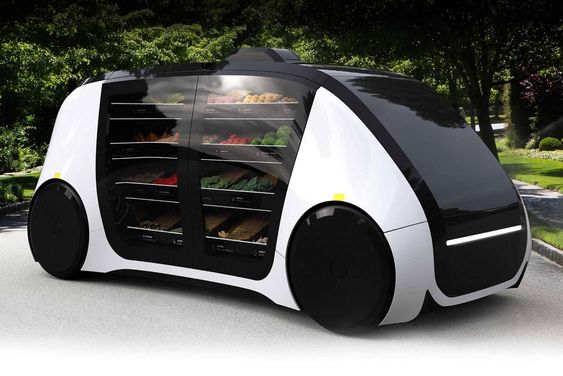
The Future of Car Sharing: Will Ownership Become a Thing of the Past?
The automotive industry is undergoing a significant transformation driven by technological advancements, changing consumer preferences, and the growing emphasis on sustainability. One of the most notable shifts is the rise of car sharing, which challenges the traditional concept of car ownership. As we look to the future, will car sharing replace car ownership altogether? Let’s explore the potential of car sharing and what it means for the future of transportation.
1. The Rise of Car Sharing
Car sharing has gained popularity in recent years as an alternative to traditional car ownership. Several factors contribute to this trend:
- Urbanization: Increasing urbanization has led to higher population densities in cities, making car ownership less practical due to limited parking and traffic congestion.
- Cost Efficiency: Car sharing can be more cost-effective than owning a car, eliminating expenses such as maintenance, insurance, and depreciation.
- Environmental Concerns: Car sharing reduces the number of vehicles on the road, leading to lower emissions and less environmental impact.
2. Technological Advancements
Advances in technology are making car sharing more accessible and efficient:
- Mobile Apps: Car sharing services use mobile apps to allow users to find, book, and unlock vehicles with ease.
- Telematics: Telematics systems track vehicle location, usage, and performance, enabling efficient fleet management and user convenience.
- Autonomous Vehicles: The advent of autonomous vehicles could revolutionize car sharing, allowing for self-driving cars to pick up and drop off passengers without the need for human drivers.
3. Economic Factors
Car sharing presents several economic benefits:
- Reduced Costs: Users pay only for the time they use the vehicle, avoiding the high costs associated with car ownership.
- Efficient Utilization: Car sharing maximizes the use of each vehicle, reducing the number of cars needed to serve the same number of people.
- Flexibility: Car sharing offers flexibility, allowing users to choose the right type of vehicle for different needs, whether it’s a compact car for city driving or an SUV for a weekend trip.
4. Environmental Impact
Car sharing can contribute to a more sustainable future:
- Lower Emissions: Fewer cars on the road mean reduced greenhouse gas emissions and better air quality.
- Resource Efficiency: Sharing vehicles reduces the demand for new car production, saving resources and energy.
- Promoting EVs: Many car sharing services are integrating electric vehicles (EVs) into their fleets, promoting the adoption of clean energy transportation.
5. Social and Behavioral Shifts
Changing attitudes towards car ownership are driving the growth of car sharing:
- Millennial Preferences: Younger generations are less interested in owning cars and more inclined to use shared services for transportation.
- Convenience: Car sharing offers the convenience of having a car when needed without the hassles of ownership.
- Community Focus: Car sharing promotes a sense of community by encouraging shared use of resources.
6. Challenges and Considerations
Despite its benefits, car sharing faces several challenges:
- Regulation: Regulatory hurdles and varying laws across regions can complicate the expansion of car sharing services.
- Infrastructure: Adequate infrastructure, such as charging stations for electric vehicles, is necessary to support car sharing.
- Consumer Trust: Building trust in car sharing services and ensuring vehicle cleanliness and reliability are essential for user adoption.
7. The Future of Car Ownership
Will car ownership become a thing of the past? While it’s unlikely that car ownership will disappear entirely, its prevalence may diminish significantly, particularly in urban areas. Several scenarios could unfold:
- Urban vs. Rural: In densely populated urban areas, car sharing and other forms of shared mobility are likely to become the norm. In rural and suburban areas, where public transportation and car sharing services may be less accessible, car ownership might still be more common.
- Subscription Models: Car manufacturers and mobility providers may offer subscription-based models that combine the benefits of ownership and sharing, allowing users to access different types of vehicles as needed.
- Integrated Mobility Solutions: Future transportation systems may integrate car sharing with other forms of mobility, such as public transit, bike sharing, and ride-hailing, creating a seamless and efficient transportation network.
Conclusion
The future of car sharing is bright, driven by technological advancements, economic benefits, environmental concerns, and changing social attitudes. While car ownership is unlikely to vanish entirely, its role in our lives may change significantly, especially in urban areas. As car sharing becomes more prevalent, we can expect a more flexible, efficient, and sustainable approach to transportation, potentially reshaping the way we think about mobility and car ownership.
Article Keywords: future of car sharing, car ownership trends, urban mobility, shared mobility, car sharing benefits, autonomous vehicles, sustainable transportation, economic impact of car sharing.
Google Ranking Keywords:
- Future of car sharing
- Car ownership vs. car sharing
- Benefits of shared mobility
- Autonomous vehicles and car sharing
- Sustainable transportation solutions
- Economic impact of car sharing
- Urban mobility trends.




Average Rating